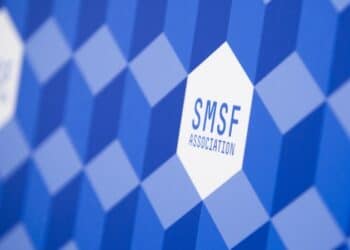The Supreme Court of NSW has heard proceedings brought by former clients, including that of investment adviser Moylan Retirement Solutions (MRS), who each lost money to a number of failed investments. One of the former clients is an SMSF.
Moylan Retirement Solutions also provided advice to the SMSF, Ryan Wealth Holdings, that suffered substantial losses and initiated proceedings against the former auditor of the fund, as reported by SMSF Adviser last month.
Mr Moylan, the principal financial adviser acting on behalf of MRS, gave financial advice to each of the plaintiffs, which resulted in them investing through loans and other forms of investments into certain corporate investment vehicles. Mr Moylan controlled one of these, Moylan Investment Group.
The monies that the plaintiffs advanced to MIG were then disbursed on Mr Moylan’s recommendation to other investments, which were largely concerned with property development of various kinds, including the subdivision of land.
Each of these investments failed, and the relevant companies were placed into liquidation. None of the monies were repaid to the plaintiffs. Mr Moylan was made bankrupt and MRS was deregistered in November 2014.
The plaintiffs could not recover their investments from MRS, MIG or the entities into which their funds were invested.
The plaintiffs decided to pursue the insurers of MRS for the loss that they had allegedly suffered.
Under section 601AG of the Corporations Act, a person may recover an amount from the insurer of a company that is deregistered if under the insurance contract, the company had a liability to the person and the insurance contract covered that liability immediately before deregistration.
The underwriters defended the proceedings under both limbs of section 601AG, contesting that MRS had any liability to the plaintiffs prior to its deregistration.
The underwriters argued that the plaintiffs were well aware of the risks that were associated with the investments they were undertaking and that there was no causal connection between any financial advice MRS gave and any loss the plaintiffs suffered, which were merely the predictable results of market forces.
They also denied liability on the grounds that there was no notification of any claim during the relevant insurance periods; the insurance cover is said to be limited to retail clients while the plaintiffs are wholesale clients, and MRS is said to be guilty of material non-disclosure and failure to comply with its duty of disclosure under the Insurance Contracts Act 1984.
The insurers also contended that there was an approved product list exclusion, which excluded cover for any claim or liability directly or indirectly related to products or instruments not contained in the insured’s approved product list at the time the advice was given.
They contended that the investment vehicles into which the plaintiffs’ funds were directed were not on the MRS approved product list and, as a result, the exclusion applies. The plaintiffs claim, however, that the investments were on the approved product list and the exclusion does not apply.
The plaintiffs contended that Mr Moylan allegedly made statements to two of the plaintiffs that the products that were recommended were all part of the approved product list of MRS.
While prima facie, section 59(1) of the Evidence Act makes these statements inadmissible, the plaintiffs sought to rely upon several exceptions to the hearsay rule.
The underwriters argued that the statements were not admissible because they were not made by a party to the proceedings as required by the definition of admission in the Evidence Act.
Justice Slattery stated that because the insurers were substituted for the deregistered company MRS, they are therefore subrogated to MRS’s position.
“They could certainly call Mr Moylan on behalf of MRS to give defence evidence under the authority s 601AG(a) confers upon them,” he said.
“When cross-examined, Mr Moylan’s statements would be admissions for the purposes of s 601AG(a) liability. The fact that Mr Moylan’s previous representations here are made out of court makes them no less able to be characterised as admissions.”
The court therefore admitted the material into evidence as an admission.
“Of course, this ruling is only as to the admissibility of these statements. Even admitted on the basis that they are, there is a live contest in the proceedings as to their reliability and their strengths and weaknesses as admissions,” he noted.


